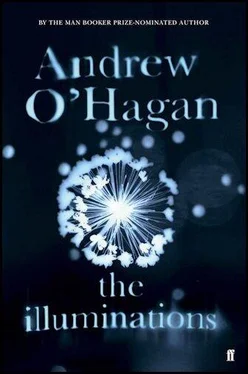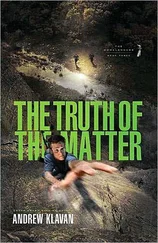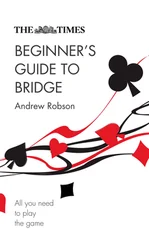And so does Luke. I can tell you it’s not what I wanted for my Luke.’
‘The North Pier,’ Anne said.
They just ignored her. It was now part of the routine, to assume Anne was now and then speaking to herself.
‘Those planes went over Jane Street,’ Anne said, lost in her own thoughts. ‘That’s where I used to live in New York.’
‘Mum says she lived in New York,’ Alice said. ‘When she was a young woman. Before me.’
‘Jane Street,’ Anne said. ‘I took pictures. I took them for J. Walter Thompson. Colgate.’
‘Everything was before me,’ Alice said. At times she felt that her mother might suffocate her with the past. Yet she went silent, admiring the mix of periods, wondering if her mother’s neighbour really had any notion of the places that Anne had been to in her busy life. Sometimes Alice would just be sitting like this and she’d suddenly realise she was in pain, without really knowing where it came from.
JANE STREET
It was a rainy night when Maureen heard tapping through the wall and knew Anne must be up to something. ‘It’s all slush outside,’ she said as she opened the door to Anne’s flat. She had used the skeleton key and made a bit of a noise so as not to frighten her when she came in. ‘It’s all slush. Are you there, dear? Are you all right?’
Anne was sitting in a dining chair. The room was lit with a single lamp. She had a hammer across her knees, a pool of tacks
in her lap. ‘My mother didn’t keep well,’ Anne said, turning as Maureen came in. ‘She was an awful one for headaches.’
‘You came to live with the aunties?’
‘That’s right. I came to Glasgow to look after them. Aunt Anna. Aunt Grace. Four of them.’
‘You came from New York?’
‘When I was a young woman,’ Anne said, ‘I took nice pictures. At night you could see the lights on in every building.’
‘That must have been nice.’
‘Yes. Before I met Harry.’
‘And when exactly did Harry die, Anne?’
She took one of the tacks from her lap and tapped it into the wall in front of her, then she turned. ‘The hot summer,’ she said. ‘All the children were outside in their bikinis and what have you. Squeezy bottles filled with water. Running about in the sun soaking one another.’
‘And what happened to your photography?’
‘I don’t know.’
‘All that talent of yours?’
‘I don’t remember.’
She sat back in the chair and looked at the shadow she’d created with tacks on the living-room wall. The rabbit was on the carpet but it seemed neglected and Anne didn’t mention it.
‘I brought you some scent,’ Maureen said. ‘A wee bottle that was sitting in a drawer next door. I won’t use it.’
‘You always put on too much perfume.’
Maureen could be hurt by some of the things the old people said but she knew they didn’t mean it.
‘But I don’t wear this one,’ she said. ‘Esther brought it from France but it’s too strong for me. I used to like strong ones.’ She
took it over to Anne and unscrewed the top so Anne could have a sniff.
‘France, did you say?’
‘Aye.’
‘I don’t know about France,’ Anne said. ‘More like the kind of thing they wear in Manchester.’
The winter had given Maureen lessons in patience and they were lessons she felt she probably needed. She and Alice had a conversation on the telephone and agreed that Luke’s going off to Afghanistan had seen the beginning of a change in Anne. It was odd. All this Harry stuff and talk about Blackpool. All this about war planes, about Canada and New York and the old aunts. Anne was fading away and becoming known at the same time and Maureen was there to see it happening. It was fast at first and then slow. That morning Anne was looking at the picture of Luke on the wall of her bedroom and said, ‘These are the men I know.’
When Maureen was installing the new perfume in Anne’s bathroom she happened to notice two more suitcases and several boxes on top of the linen cupboard. They must have gone with Anne from house to house. Using the towel-rail for assistance, she stood on the toilet seat and reached up to put her hand into one of the boxes. Right at the top, Maureen found a photograph that appeared silvery in the bathroom light. It showed a kitchen sink with old taps and a pair of breakfast bowls waiting to be washed and a milk bottle filled with soapy water. The sink and its contents shone like nothing on earth and Maureen held it out in front of her, trying to imagine the young woman who could make a picture like that.
‘Good Lord, Anne,’ she said, returning to the living-room. ‘I had
no idea you kept even more of these old suitcases. They have labels on them, those beautiful old labels you used to get. It says:
Anne Quirk, 12 Jane Street, New York
That must be you.’
‘That was me.’
Maureen’s own mother had been self-sufficient at the end and didn’t want help, but Anne was different and full of surprises, like the miracle of that photograph, thought Maureen. She helped Anne into bed. She spread the covers and leaned in to put off the lamp.
‘I need to send a cheque or a postal order,’ Anne said.
‘Everything’s all right.’ Maureen tucked her in and felt glad that she and Anne were the great pals of Lochranza Court. It was lovely to know a person who doesn’t want to judge you all the time.
‘But it needs to be sent to Blackpool,’ Anne said. ‘They have two daughters and one’s called Sheila.’
‘Who are these people, Anne? Can I help you?’
‘They’re my friends. She’s the landlady.’
She enjoyed looking at Maureen’s face, how it became lively when things were upsetting, how she always had something to say. Maybe Maureen was a shopkeeper, the way she came to her room with soup and milk. And maybe she could help her send the money to Blackpool.
Don’t forget the Scotch tape, Harry. And if I were you I would get some cotton wool. Bert phoned and said there’s an editor who wants the youth of today. That’s what they’re looking for. I was out half the night at the cafes and these pictures, Harry, you’ll like one or two, I’m sure you will. These teenagers. You wouldn’t believe them. On Saturday I’m photographing a group at the Fleetwood Marine.
Maureen stroked her hand. ‘Away to sleep,’ she said. ‘There’ll be another day tomorrow, if God spares us.’
‘Harry said he would come.’
‘Away to sleep.’
Maureen wandered back to her own flat. It must be good to know that your husband was something in the world and that he loved you. Must give you a good feeling, Harry saying your name as he flew over the fields and saying your name when he lay down beside you at night.
Early one morning in the summer of that year a troop carrier roared past a melon stall on the road to Maiwand. Inside the vehicle the boys were ribbing each other, the boys of A Section, a pair of fire teams in the 1st Royal Western Fusiliers. It wasn’t strictly an Irish regiment but it had always attracted boys with a sense of Ireland behind them, a number of songs or a father who swore by an old decision.
The cab shook and you could taste the dust. The lads were jammed in the middle of the convoy. Captain Luke Campbell was in charge of the section and he sat in the Vector with his rifle flat across his knees. He was talking about the Afghan servicemen they were meant to be looking after during the mission. ‘The nobs can blab all they like,’ Luke said. ‘There are ANA troops I’d choose over half the Paras.’
‘Too right,’ Private Dooley said.
‘No messin’,’ Flannigan said. ‘I’d take the ragamuffins every time over the Plonkers.’
Читать дальше











